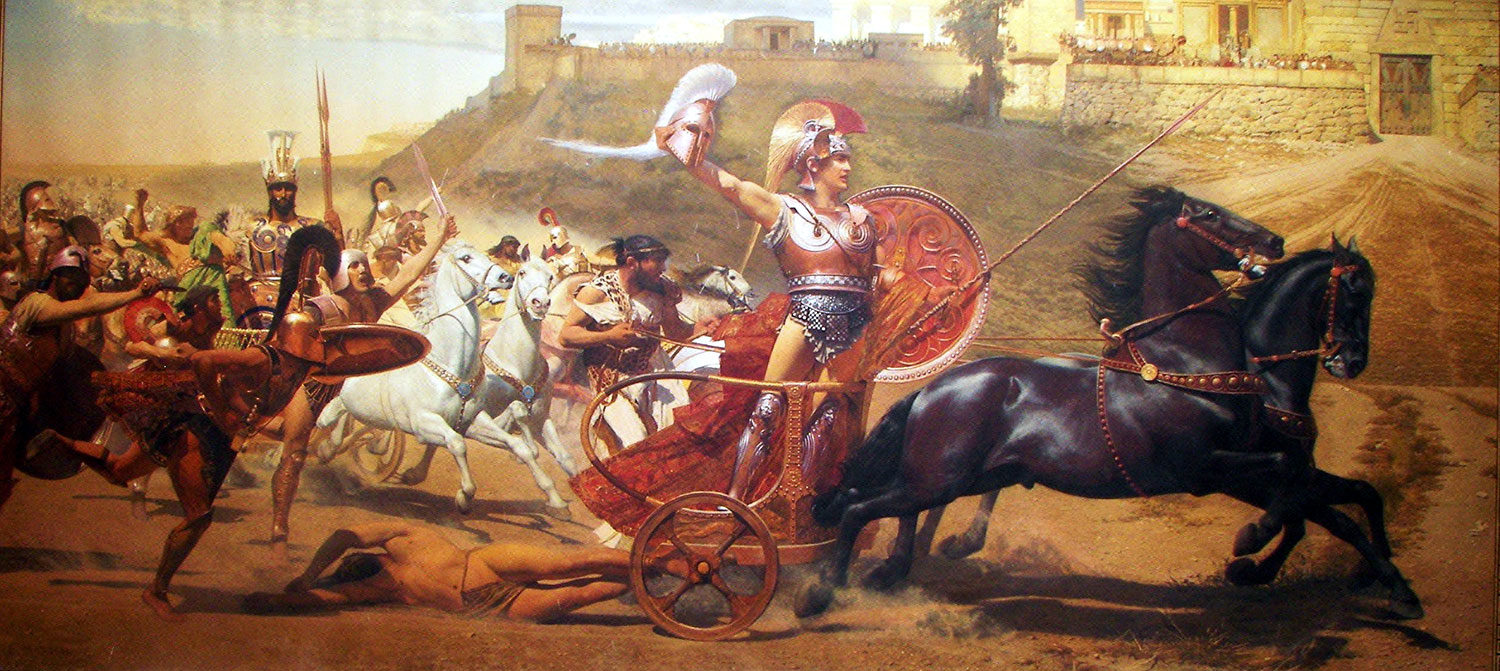Influential cultures never arise ex nihilo. Before Athens’ Golden Age, the ancient Greek economy had already expanded dramatically and Greeks had colonized lands on the shores of the Mediterranean and Black Seas. They began to create communities of citizens, to frame laws and develop institutions to govern themselves, which became the context for the development of Greek political thought. Homer immortalized the Trojan War and the adventures of Olympian gods and goddesses. Lyric poets sang of love and political intrigue. The Olympic Games rewarded physical fitness and mental discipline. New forms of scientific reasoning were pioneered in Greek cities on the Anatolian coast, and students of Pythagoras then brought science to southern Italy, where the Sybarites were famed for their pursuit of pleasure. These vibrant cultural strands make the Greek Age of Expansion one of history’s most intriguing eras.
Friday, February 23, 2018 | 7:30 – 9:30 pm
The Rise of the Ancient Greeks / Josiah Ober (Classics, Stanford) After the fall of the Bronze Age Kingdoms, Greece was impoverished, under-populated, and isolated from the wider Mediterranean world. By the classical era, Greece was rich, densely populated, and the bustling center of Mediterranean trade and culture. How and why did the Greek city-states rise, in just a few hundred years, from poverty to wealth, from stagnant backwater to booming metropolis? The “Greek miracle” has long fascinated students of history. It can be explained by applying the methods of modern social science. The creation of new forms of citizenship revolutionized the Greeks’ attitudes towards investment, education, and risk-taking. Competition with fellow Greeks and with neighboring civilizations promoted a cycle of institutional and technological innovation. When citizens gained reasons to invest in themselves, and to defend those investments with laws and arms, a new age dawned. And the world was changed forever.
Orpheus’s Lyre. Music selections from Gluck and Philip Glass; poetry of Rilke and Art of Rodin, Moreau, Cortot. Performed by Kayleen Asbo (story and piano) and Evan Kahn (cello). In 1922, the great poet Rainer Maria Rilke arrived at a chateau in Switzerland in a state of profound depression and grief with a case of writer’s block so intense that it had lasted almost ten years. Over just three weeks, the image of the mythic figure of Orpheus, combined with the sound of violin music played by a young girl, kindled the creative fire within Rilke that gave way to an astonishing series of masterpieces: the Duino Elegies and the Sonnets to Orpheus. This story of how music opened the doorway to transformation and healing will frame a musical voyage from grief to grace and joy.
Saturday, February 24, 2018 | 10 am – noon and 1:30 – 4:00 pm
Homer and the Hero / Richard Martin (Classics, Stanford). Achilles, Hector, Odysseus, Agamemnon—when moderns think of Homer, they think “heroes.” But what were the Greeks thinking about these characters in the period that the Homeric poems took shape (roughly 800-500 BCE)? What did it mean to be a hero (or heroine—also a Greek word)? How can heroes also be killers, cheats, and liars? This illustrated talk will explore the idea of the hero as a religious, social, and poetic category, while interpreting the two great epics attributed to the mysterious composer Homer. The Panhellenic nature of the hero and the poems will be investigated in relation to several other major phenomena that had their start in archaic Greek culture—among them, colonization from the Black Sea to the western Mediterranean, the spread of localized shrines to heroic figures, and the Olympic games.
Harmonic Proportions: Pythagorean Architecture in Greek Italy / Margaret Miles (Classics and Art History, UC Irvine). In this lecture we explore the impact of Pythagoras, the Greek sage, seer, and philosopher who taught Greeks in southern Italy how number, proportion and musical harmonics are built into the universe, how life and death are cyclical, and how best to live life accordingly. Pythagoras was born about 570 BC on the island Samos, where Ionian Greek literary and artistic culture flourished. After some travels in the eastern Mediterranean, Pythagoras settled in southern Italy, at Greek Croton and Metapontum. Pythagoras and his students Empedocles and Archytas had enormous influence on subsequent philosophies, and their ideas had visible expressions in art and architecture. We consider here some of Pythagoras’ scientific and religious teachings, and how architects in southern Italy and Greek Sicily included Pythagorean harmonic proportions in Greek temples.
Performance / The Odyssey: A Modern Folk-Opera / Joe Goodkin. Joe Goodkin’s Odyssey is an original musical composition for solo acoustic guitar and voice. A performance of 24 original songs with lyrics inspired by Odysseus’ famous exploits, it represents in a contemporary musical mode both the abridged plot and the performance circumstances of Homer’s original oral composition of The Odyssey. Joe’s Odyssey is intended to highlight a broad range of classical and literary issues including: oral tradition, local variation, identity, and classical reception.
The Making of States and Citizenship in Archaic Greece / Emily Mackil (History, UC Berkeley). The Archaic Period was an age of political experimentation and struggle. Rising social stratification led to fierce political battles over the distribution of power and privilege within communities, and it was in this fiery crucible that the Greeks forged a world of micro-states and a distinctive notion of citizenship. In this lecture we will consider a series of phenomena that contributed to the formation of the distinctive micro-states of the Archaic Greek world: the entanglement of private wealth and public power, the emergence of written law, the importance of status, the value of collective deliberation, and the struggle for justice in the distribution of power. In the process we will examine how and why the privileges and obligations associated with citizenship changed over the course of the Archaic period.
Panel Discussion: Q&A with presenters
Download our postcard here: HW Ancient Greece Postcard
